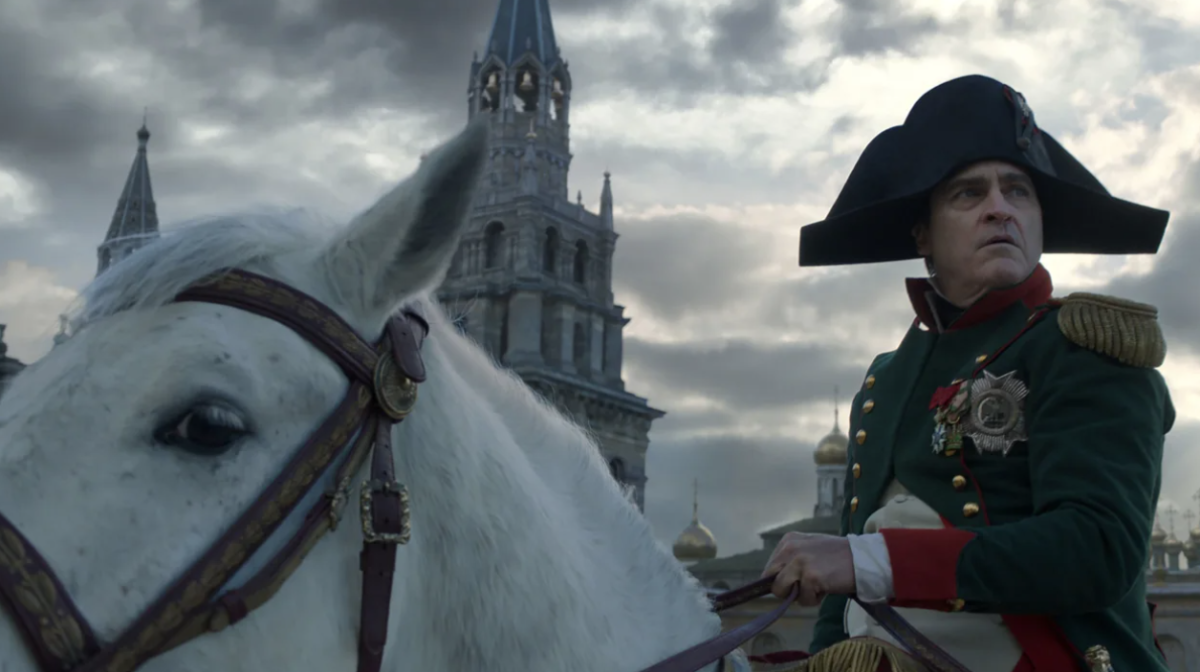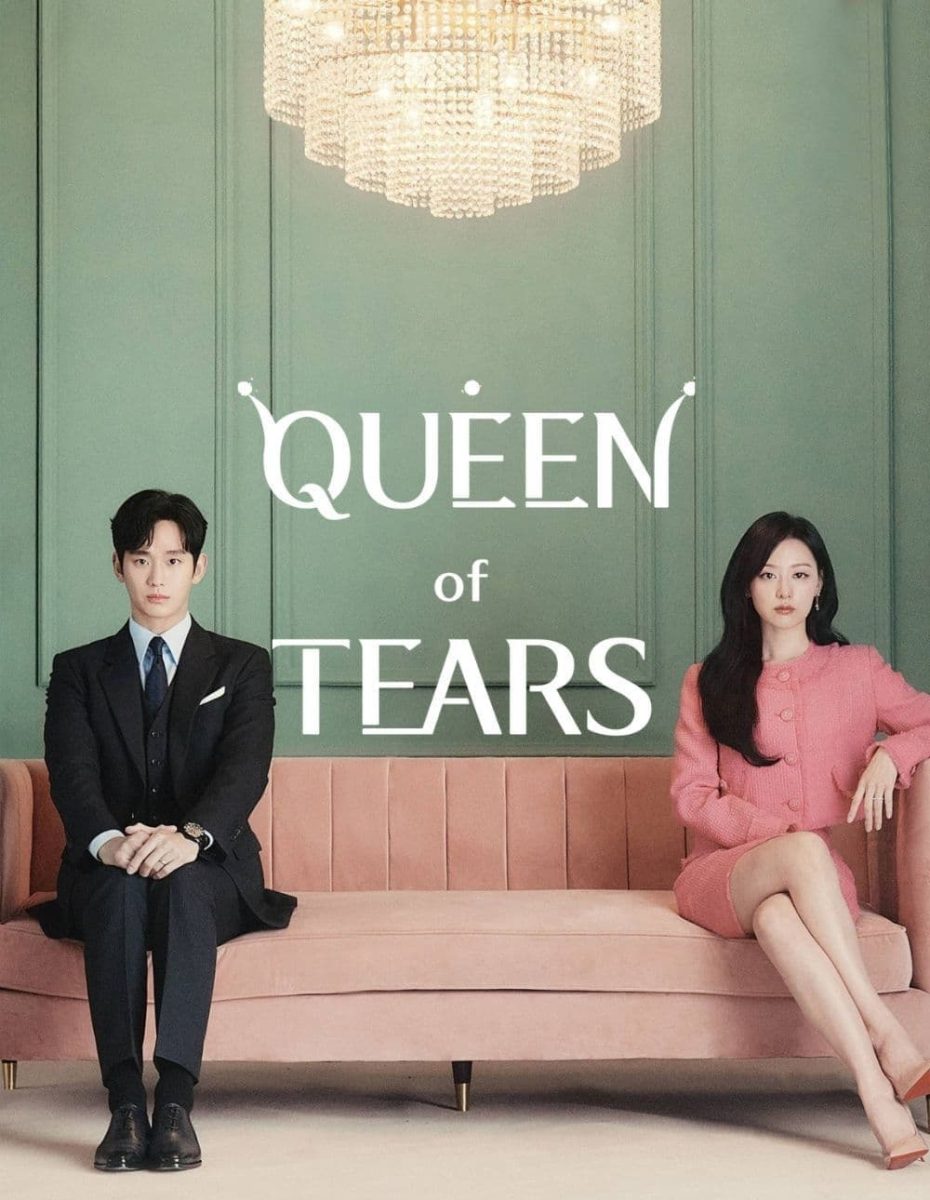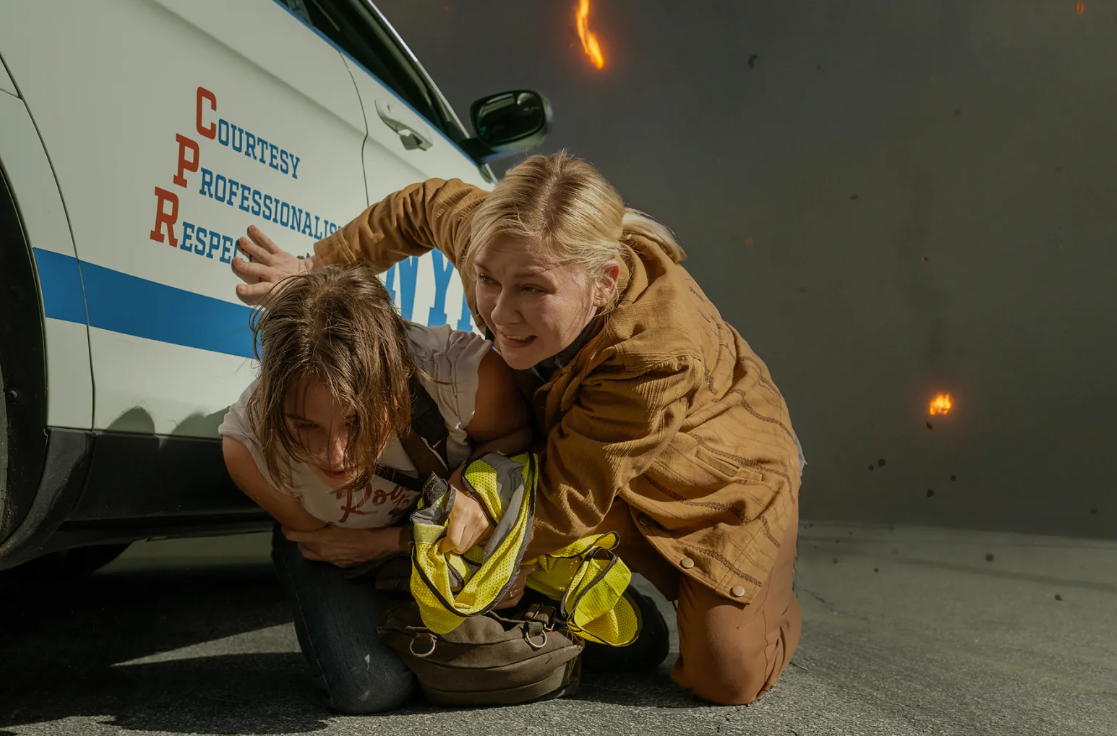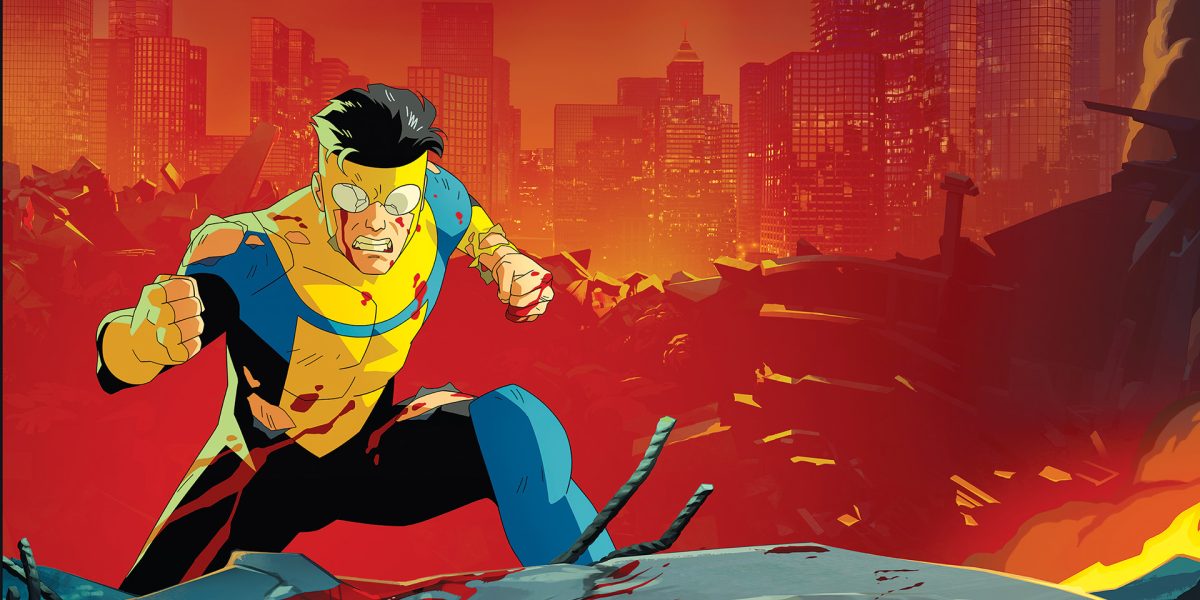Rating: 3/5 Stars
In Ridley Scott’s latest cinematic venture, Napoleon, the director tackles one of history’s most complex figures. The film takes on the daunting task of condensing the life of the French emperor into a 2-hour and 38-minute runtime. With Scott at the helm, one would expect nothing less than a visually stunning film with excellent production value, and that is precisely what Napoleon delivers.
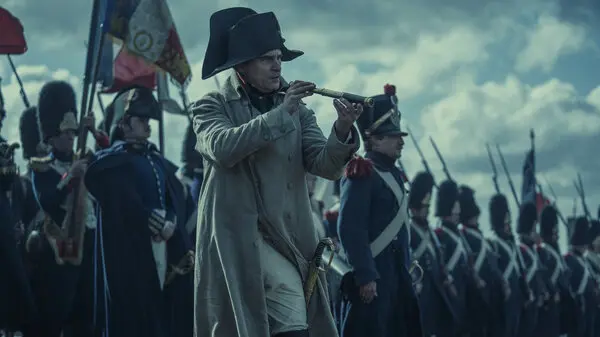
The acting is stellar, although it is worth noting that none of the French characters sport French accents; I’ll get to that later. Joaquin Phoenix gives a solid performance as Napoleon. He commands the screen and shows the many facets of the historical figure. The real standout is Vanessa Kirby as Josephine. Kirby delivers a powerful performance, stealing every scene in which she appears. Her on-screen chemistry with Phoenix adds more depth to the film and allows the audience to see Napoleon’s growth.

The cinematography in Napoleon is nothing short of breathtaking. From the sweeping vistas of the French countryside to the cramped and claustrophobic battlefield conditions, the film’s visuals are a feast for the eyes. The sets are equally impressive, transporting the viewer back to the early 19th century and immersing them in the world of Napoleon Bonaparte. However, despite these positives, the film falls short in the most critical aspect – the story.
While the film covers the significant events of Napoleon’s life, it leaves the viewer wanting more. The characters are not given enough time to develop, and the film sometimes feels rushed. This is a significant drawback for a movie almost three hours long. A biopic about one of the most influential figures in history should be a captivating and immersive experience, but unfortunately, Napoleon fails to deliver in this regard.
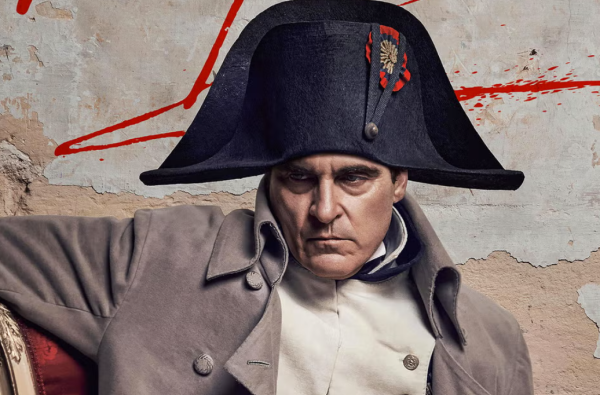
The film’s editing also left something to be desired. There were many strange fades to white, and we, the audience, would suddenly be in a completely different place, which was daunting and took me out of the film. Also, certain scenes had a lot more screen time than others, while the shorter ones often had more impact on Napoleon’s life.
An aspect that cannot be overlooked in a review of Ridley Scott’s Napoleon is the presence of historical inaccuracies. Scott riled up many historians with his comments when people called out the film’s many inaccurate depictions of Bonaparte’s life. In response, Scott bluntly said, “get a life,” which rubbed many the wrong way. The film is plagued by several historical mistakes that diminish its authenticity. A glaring example is evident throughout the movie, where French soldiers, citizens, and even main characters possess English accents. Another historical inaccuracy involves Napoleon allegedly shooting cannons at the pyramids to conquer Egypt—an event that never transpired and was fabricated by Ridley Scott. While I am no historian, it is crucial to acknowledge these discrepancies. However, if one can overlook these inaccuracies, the film would be much more enjoyable.
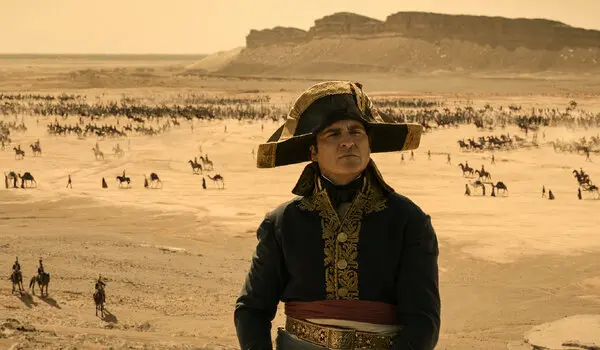
Given the impressive cast and crew involved, I had high expectations for this film. However, they fell short of the mark in attempting to capture the enormity of Napoleon’s story in a single 2-hour and 38-minute movie. The scale of his life and impact is too vast to be effectively condensed into a single film. Instead, I think a high-budget series, like Game of Thrones, would be a much better format to do justice to this epic tale.



